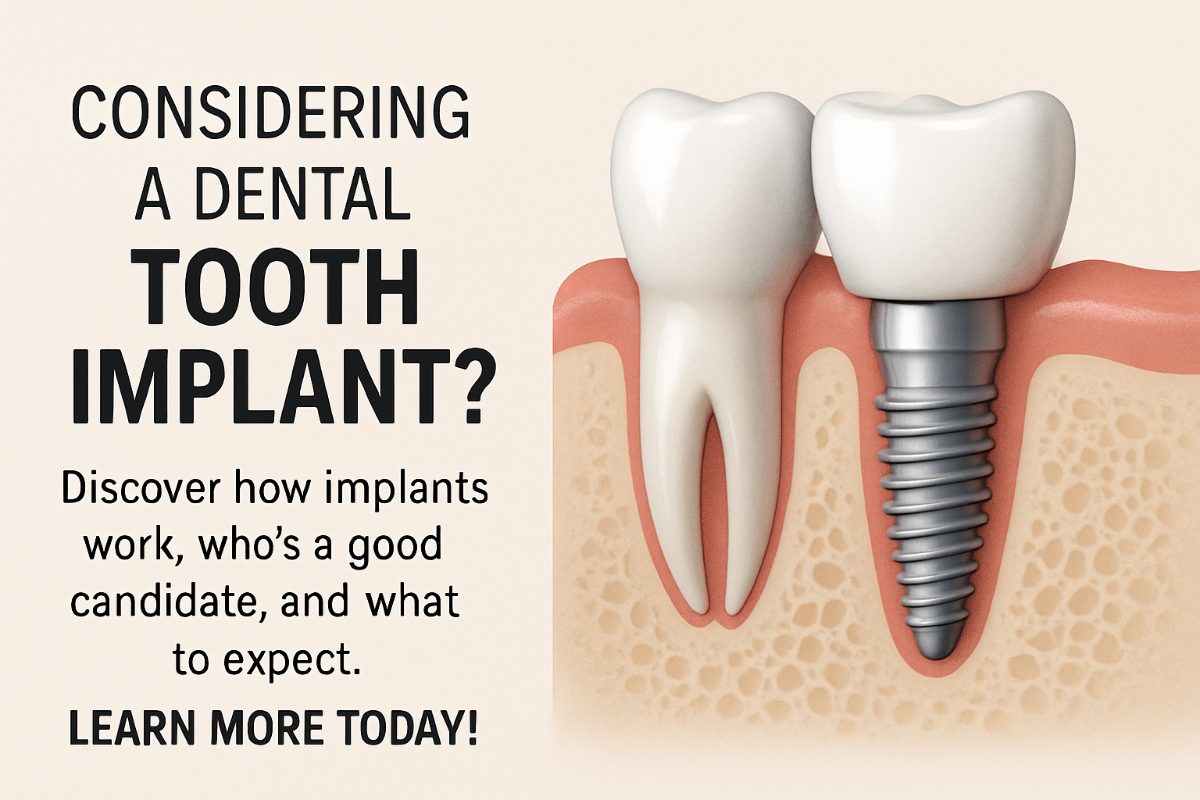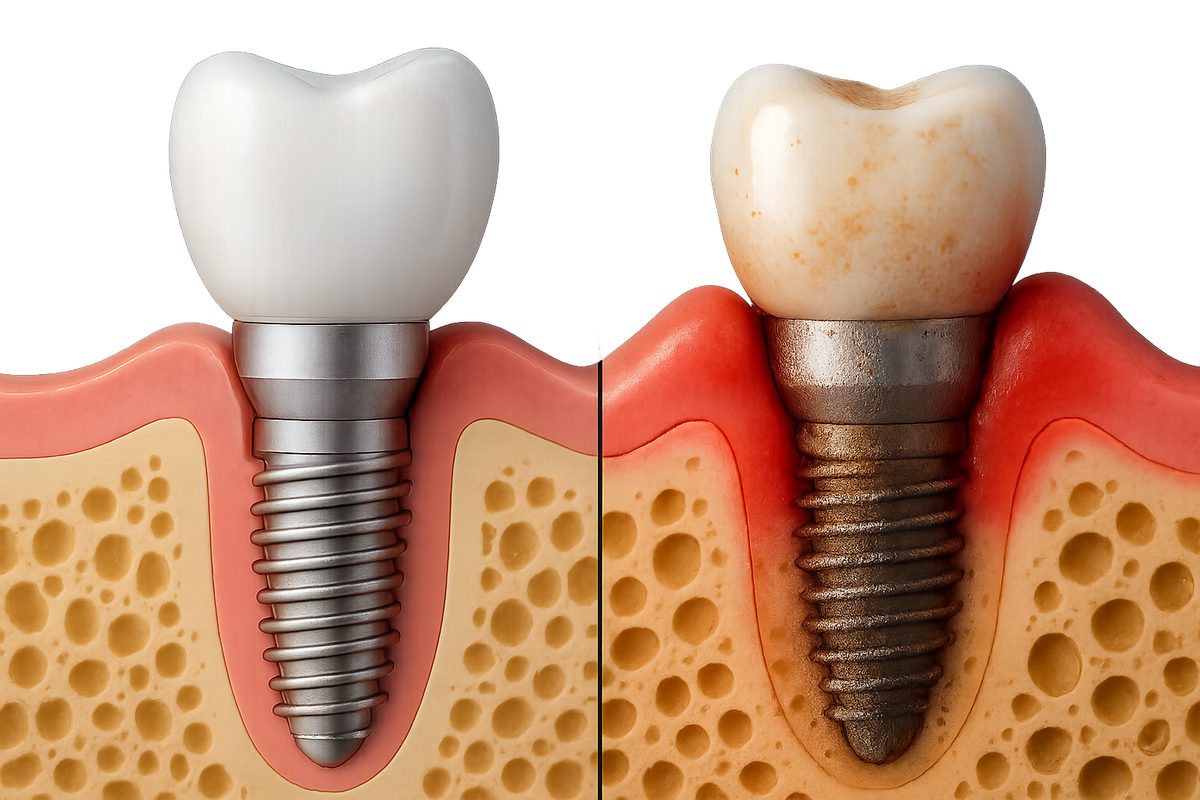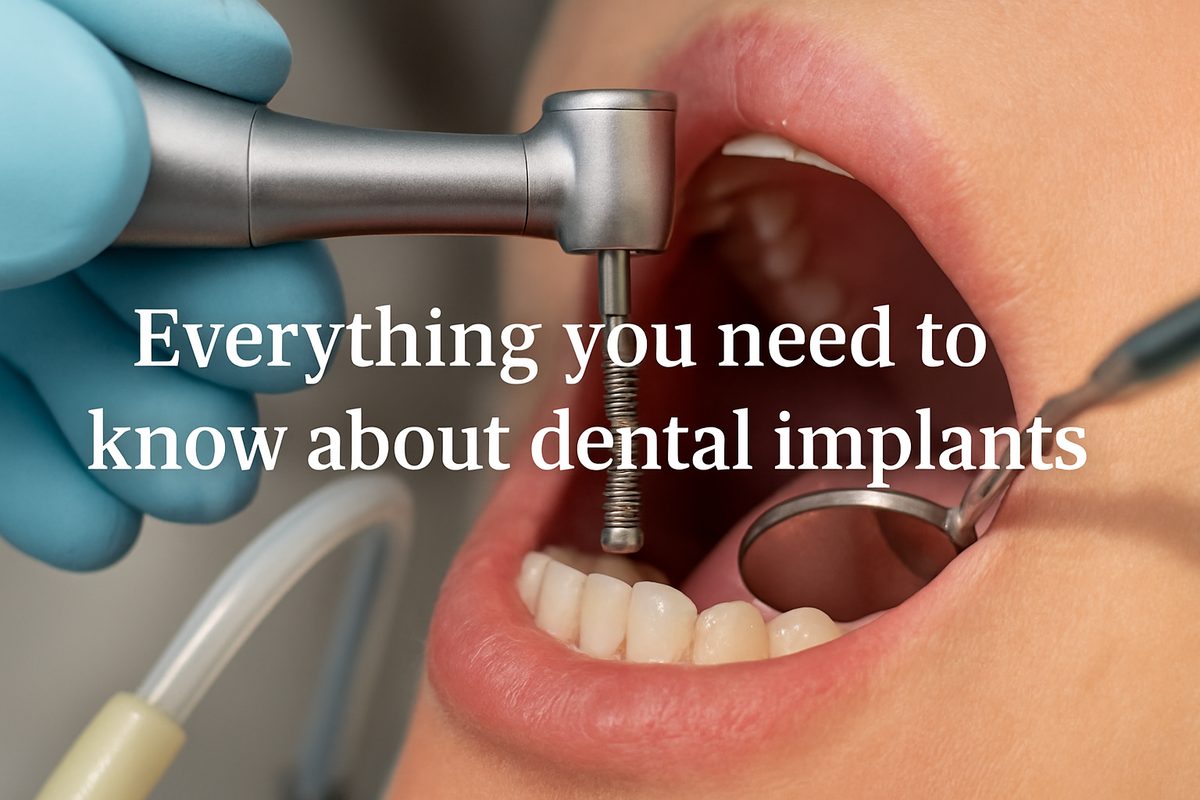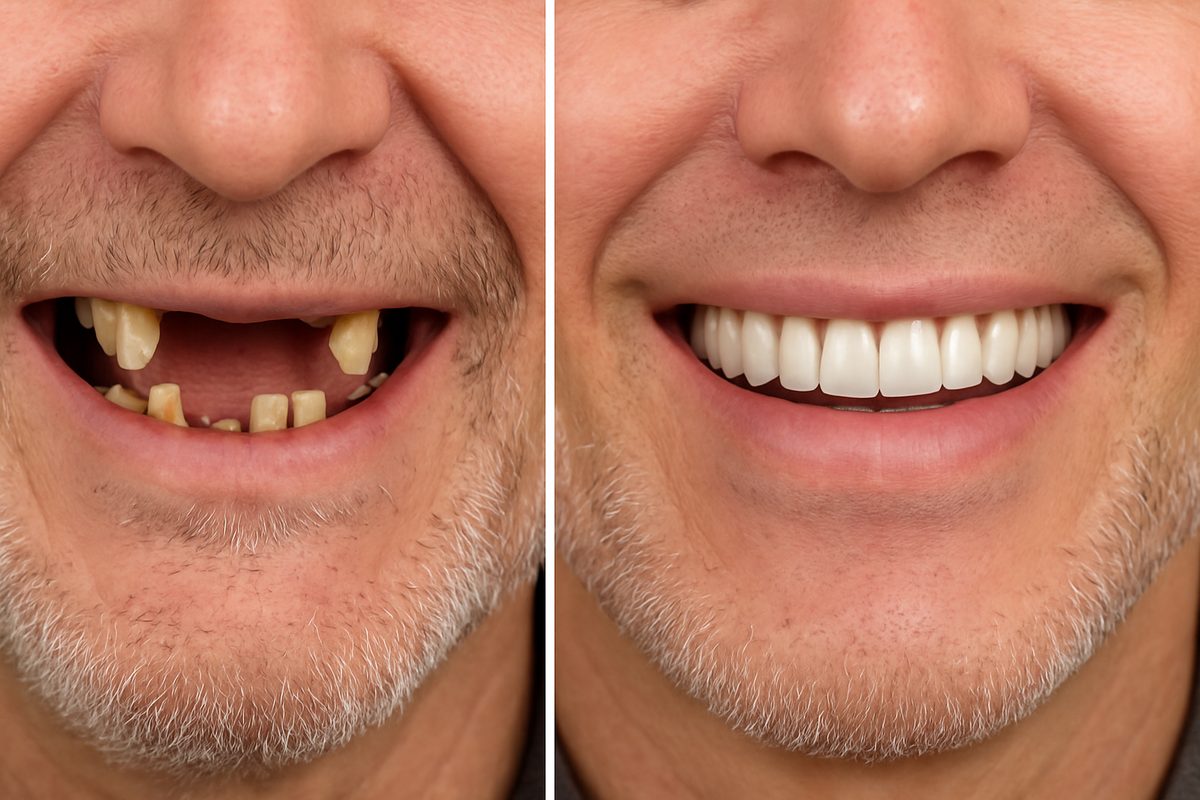Dental Blog - Concord, NC
Tips, Facts, And The
Latest In Dentistry

Is A Full Implant The Right Choice For You?
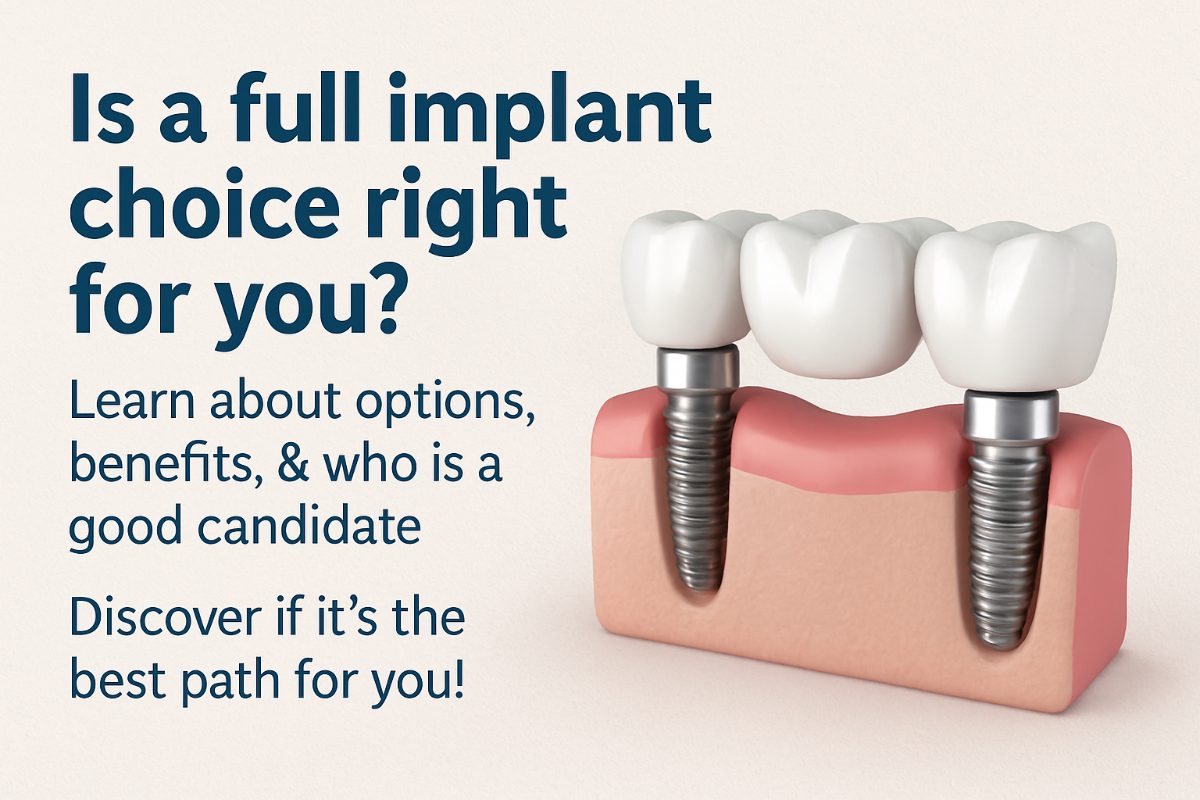
Deciding whether a full implant choice is right for you is a big step. This guide explains what a full implant solution means, who benefits most, the pros and cons, and practical steps to make an informed decision.
Read on to learn what a full-arch implant involves, common types (like All-on-4), what to expect long term, who makes a good candidate, and the exact questions to ask your dentist so you can choose with confidence.
What a full implant is
A full implant is a solution that replaces an entire arch of missing or failing teeth using dental implants to support a fixed prosthesis. Unlike single implants that replace one tooth at a time, a full-arch system restores the whole upper or lower set of teeth. It also differs from traditional dentures because the prosthesis is anchored to implants, so it stays stable and usually feels more like natural teeth.
Common types
Here are the most common full-arch implant approaches and when they’re used:
- All-on-4: Four implants support a fixed arch. Often used when bone in the front jaw is adequate, and it can avoid bone grafts.
- All-on-6: Six implants give extra support and stability. Chosen when more bone is available or when stronger support is desired.
- Implant‑retained overdentures: Two to four implants hold a removable denture in place. Good for patients who want easier cleaning or lower initial costs.
Benefits and drawbacks of a full implant choice
Choosing a full implant brings significant advantages but also trade-offs. Below are the main points to consider.
Benefits
- Stability: Fixed to implants, so no slipping or adhesive.
- Improved chewing: Stronger bite force than dentures.
- Bone preservation: Implants help maintain jawbone over time.
- Appearance: A natural, often permanent-looking smile.
Drawbacks
- Cost: Higher upfront expense than dentures or bridges.
- Surgery: Requires oral surgery and recovery time.
- Timeline: Multiple visits and healing periods; may take months.
- Maintenance: Fixed restorations still need regular care and professional checkups.
What to expect long term
Full-arch implants can last many years—often decades—with good care. Implant fixtures (the posts) have very high success rates, while the prosthetic teeth may need repair, relining, or replacement over time. Expect regular dental cleanings, home care, occasional adjustments, and periodic x-rays or scans to check bone and implant health.
Who is a good candidate?
Not everyone is a candidate for full-arch implants. Key factors your dentist or surgeon will evaluate include:
- Bone volume and density in the jaw (may require grafting if low).
- Gum health—active infection or severe gum disease must be treated first.
- Chronic health conditions (diabetes, heart disease) that affect healing.
- Smoking or heavy tobacco use can reduce success rates.
- Age is less important than overall health and bone condition.
When other options may be better
Consider dentures, partials, or bridges when bone volume is insufficient and grafting isn’t desired, when budget limits rule out implants, or when a patient prefers a non-surgical option. Implant-retained overdentures can be a middle ground—more stable than dentures but less invasive than a full fixed arch.
How to make the full implant choice
Follow practical steps to decide if a full implant choice fits your needs:
- Get a CT scan to assess bone and anatomy.
- Consult with an implant specialist (oral surgeon or prosthodontist).
- Ask for a clear timeline, treatment phases, and total costs.
- Explore financing options and whether your insurance covers parts of treatment.
- Consider a second opinion if you’re unsure about the recommended plan.
Questions to ask your dentist or surgeon
- How many full-arch procedures have you done?
- What is your complication and success rate?
- What are the alternatives for my situation?
- Will I get a temporary prosthesis during healing?
- Is there a warranty or follow-up care included?
- What should I expect for recovery and daily care?
Next steps and light practice mention
Schedule a consultation to get a personalized evaluation and CT scan. A qualified provider can explain if a full implant choice is the best path for your health, function, and budget. If you’re ready, ask the clinic about their implant experience, before-and-after cases, and financing help to plan your next move.


